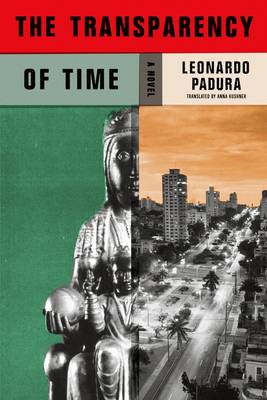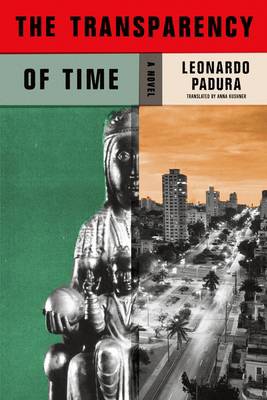
Bedankt voor het vertrouwen het afgelopen jaar! Om jou te bedanken bieden we GRATIS verzending (in België) aan op alles gedurende de hele maand januari.
- Afhalen na 1 uur in een winkel met voorraad
- In januari gratis thuislevering in België
- Ruim aanbod met 7 miljoen producten
Bedankt voor het vertrouwen het afgelopen jaar! Om jou te bedanken bieden we GRATIS verzending (in België) aan op alles gedurende de hele maand januari.
- Afhalen na 1 uur in een winkel met voorraad
- In januari gratis thuislevering in België
- Ruim aanbod met 7 miljoen producten
Zoeken
€ 41,45
+ 82 punten
Omschrijving
From Leonardo Padura—whose crime novels featuring Detective Mario Conde form the basis of Netflix’s Four Seasons in Havana—The Transparency of Time sees the Cuban investigator pursuing a mystery spanning centuries of occult history.
Mario Conde is facing down his sixtieth birthday. What does he have to show for his decades on the planet? A failing body, a slower mind, and a decrepit country, in which both the ideals and failures of the Cuban Revolution are being swept away in favor of a new and newly cosmopolitan worship of money.
Rescue comes in the form of a new case: an old Marxist turned flamboyant practitioner of Santería appears on the scene to engage Conde to track down a stolen statue of the Virgen de
Regla—a black Madonna. This sets Conde on a quest that spans twenty-first century Havana as well as the distant past, as he delves as far back as the Crusades in an attempt to uncover the true provenance of the statue.
Through vignettes from the life of a Catalan peasant named Antoni Barral, who appears throughout history in different guises—as a shepherd during the Spanish Civil War, as vassal to a feudal lord—we trace the Madonna to present-day Cuba. With Barral serving as Conde’s alter ego, unstuck in time, and Conde serving as the author’s, we are treated to a panorama of history, and reminded of the impossibility of ever remaining on its sidelines, no matter how obscure we may think our places in the action.
Mario Conde is facing down his sixtieth birthday. What does he have to show for his decades on the planet? A failing body, a slower mind, and a decrepit country, in which both the ideals and failures of the Cuban Revolution are being swept away in favor of a new and newly cosmopolitan worship of money.
Rescue comes in the form of a new case: an old Marxist turned flamboyant practitioner of Santería appears on the scene to engage Conde to track down a stolen statue of the Virgen de
Regla—a black Madonna. This sets Conde on a quest that spans twenty-first century Havana as well as the distant past, as he delves as far back as the Crusades in an attempt to uncover the true provenance of the statue.
Through vignettes from the life of a Catalan peasant named Antoni Barral, who appears throughout history in different guises—as a shepherd during the Spanish Civil War, as vassal to a feudal lord—we trace the Madonna to present-day Cuba. With Barral serving as Conde’s alter ego, unstuck in time, and Conde serving as the author’s, we are treated to a panorama of history, and reminded of the impossibility of ever remaining on its sidelines, no matter how obscure we may think our places in the action.
Specificaties
Betrokkenen
- Auteur(s):
- Vertaler(s):
- Uitgeverij:
Inhoud
- Aantal bladzijden:
- 416
- Taal:
- Engels
- Reeks:
Eigenschappen
- Productcode (EAN):
- 9780374277956
- Verschijningsdatum:
- 15/06/2021
- Uitvoering:
- Hardcover
- Afmetingen:
- 164 mm x 235 mm
- Gewicht:
- 649 g

Alleen bij Standaard Boekhandel
+ 82 punten op je klantenkaart van Standaard Boekhandel
Beoordelingen
We publiceren alleen reviews die voldoen aan de voorwaarden voor reviews. Bekijk onze voorwaarden voor reviews.









